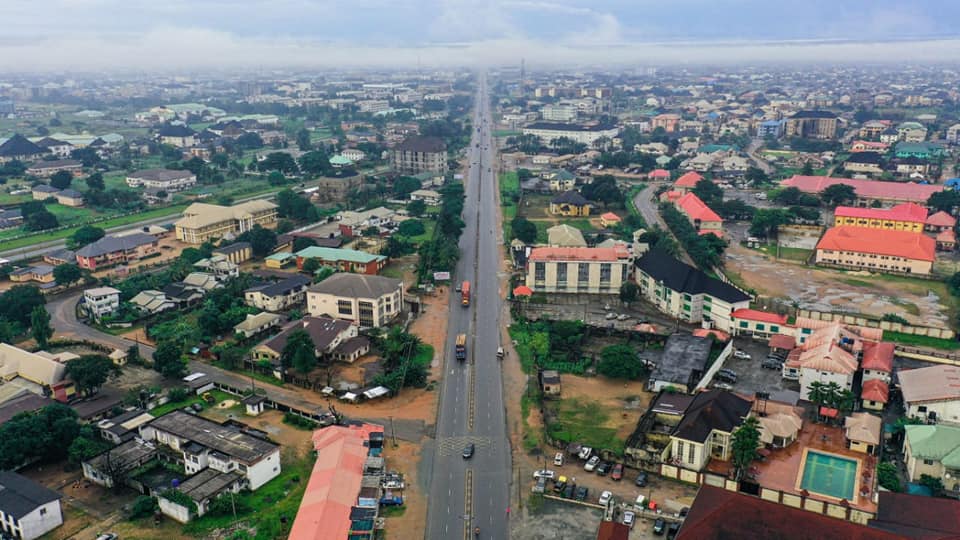A nation at war with its own conscience
DAILY, Nigerians lament the state of affairs. We condemn the impunity of the powerful, the selective application of justice, and the paralysis of institutions tasked with upholding the rule of law. We compare our nation to “saner climes,” where the law is supreme and no one is above it. Yet, when government dares to act in line with those very ideals we claim to admire, we recoil—not because the action is wrong, but because we dislike the personalities involved.
“We cry out for justice, yet cheer for impunity when it suits our biases.”
This paradox reveals a troubling inconsistency in our collective conscience: we demand justice, but we are reluctant to embrace it when it challenges our sentiments.
The Abuja confrontation
On November 11, 2025, a confrontation in Abuja reignited a critical national conversation. The Minister of the Federal Capital Territory, Nyesom Wike, and his team were obstructed by armed soldiers while attempting to inspect a parcel of land in Gaduwa. The soldiers claimed they were acting on orders to protect the property, allegedly linked to a retired naval chief.
The Minister, backed by the Director of Lands Administration, insisted the land was under the jurisdiction of the FCTA and that the military had no legal right to occupy it. The clash escalated when the officer, rather than deferring to civil authority, argued with the minister, asserting the land had proper documentation—claims directly contradicted by the FCTA’s records.
This was not merely a clash of egos; it was a clash of constitutional mandates. It was a vivid reminder of the fragile balance between civilian authority and military power in Nigeria.
The contradictions we must confront
Do we even know the kind of Nigeria we’re fighting for? We cry out for justice, yet cheer for impunity when it suits our biases. We demand order but vilify those who try to enforce it. We claim to admire the rule of law in “saner climes,” yet recoil when our own institutions attempt to uphold it—especially if the face behind the action is one we dislike.
This contradiction is not just political; it is moral. It reveals a society unsure of its values, swayed more by sentiment than principle. We cannot build a nation on shifting sands of preference and prejudice. A democracy thrives only when its citizens are committed to principles that transcend personalities.
The military’s place in democracy
In Nigeria’s democratic system, the military is constitutionally mandated to defend the territorial integrity of the nation, support civil authorities when called upon, and remain subordinate to civilian leadership. Its legitimacy derives not from its possession of arms, but from its obedience to civilian authority.
The military is not an arbiter of land disputes. It is not a substitute for civil institutions. When soldiers obstruct civil officials, they undermine the very constitution they swore to defend.
The digital age and new responsibilities
In the digital era, the military is not just a force of arms—it is a custodian of national integrity in cyberspace, a partner in disaster response, and a symbol of disciplined service. With the Nigerian Armed Forces embracing digital transformation—through encrypted communications, cyber defence units, and AI-driven intelligence—there is a pressing need to match technological advancement with ethical and democratic maturity.
Orders must be traceable, lawful, and subject to civilian review. Command structures must be transparent. Officers must be educated not only in tactics but in democratic values, human rights, and constitutional literacy. Without these safeguards, digital transformation risks becoming digital authoritarianism. Technology without ethics is tyranny in disguise.
Beyond personalities
This is not a defence of Minister Wiketone or tactics. Leadership demands both firmness and restraint. But we must not let personalities cloud our judgment. The real issue is the erosion of democratic norms and the creeping militarisation of civil spaces.
When we reduce national debates to personal likes and dislikes, we trivialise the very principles that sustain democracy. The rule of law is not about who enforces it; it is about the fact that it is enforced. Justice must be blind to personalities, impartial in its application, and consistent in its standards.
Democracy beyond elections
Democracy is not just about elections—it is about institutions, accountability, and the rule of law. Elections are the visible rituals of democracy, but institutions are its invisible backbone. Without strong institutions, elections become spectacles without substance.
Nigeria must therefore invest in strengthening its judiciary to ensure justice is impartial and accessible, its legislature to provide oversight and representation, its civil service agencies to implement policies with integrity, its press to hold power accountable and inform citizens, and its civil society to mobilise citizens and defend freedoms. Democracy is a delicate ecosystem. When one institution falters, the entire system is endangered.
The moral compass of Nigeria
Ultimately, the question is not about land in Gaduwa or the personalities involved. It is about the moral compass of Nigeria. Do we want a nation where soldiers dictate civil affairs, or a nation where institutions uphold justice? Do we want a country ruled by sentiment or a country governed by principle?
The Nigeria we are fighting for must be one where the law is supreme and no one is above it, where institutions are strong, impartial, and respected, where citizens value principle over personality, where the military serves rather than rules, and where democracy is more than elections—it is accountability, transparency, and justice.
A call to reflection
The confrontation in Abuja is a mirror held up to our society. It reflects our contradictions, our biases, and our uncertainties. But it also offers us an opportunity for reflection. We must ask ourselves: What kind of Nigeria do we want to leave for future generations?
If we continue to cheer for impunity when it suits us, we will inherit a nation where justice is a commodity, sold to the highest bidder. If we continue to vilify institutions when they act against our preferences, we will inherit a nation where institutions are paralysed by fear of public sentiment. If we continue to tolerate military interference in civil affairs, we will inherit a nation where democracy is a façade, and authoritarianism lurks beneath.
But if we commit to principles—justice, accountability, rule of law—we will inherit a nation where democracy thrives, institutions flourish, and citizens are free.
Conclusion: Nigeria is worth fighting for
Do we even know the kind of Nigeria we’re fighting for? That is the question that must haunt our conscience. We are not fighting for personalities. We are not fighting for land. We are not fighting for temporary victories. We are fighting for a nation where justice is impartial, institutions are strong, and democracy is real.
The Nigeria worth fighting for is a Nigeria where the military respects civilian authority, where institutions uphold justice without fear or favour, and where citizens value principle over sentiment. It is a Nigeria where democracy is not just a ritual of elections, but a culture of accountability.
Let us therefore rise above our contradictions. Let us commit to principles that transcend personalities. Let us build a Nigeria where justice is not selective, where institutions are not paralysed, and where democracy is not hollow. For in the end, the Nigeria we inherit will be the Nigeria we choose. And the Nigeria we choose must be one worth fighting for.
Ojo Emmanuel Ademola is Africa’s first professor of cybersecurity and information technology management.






